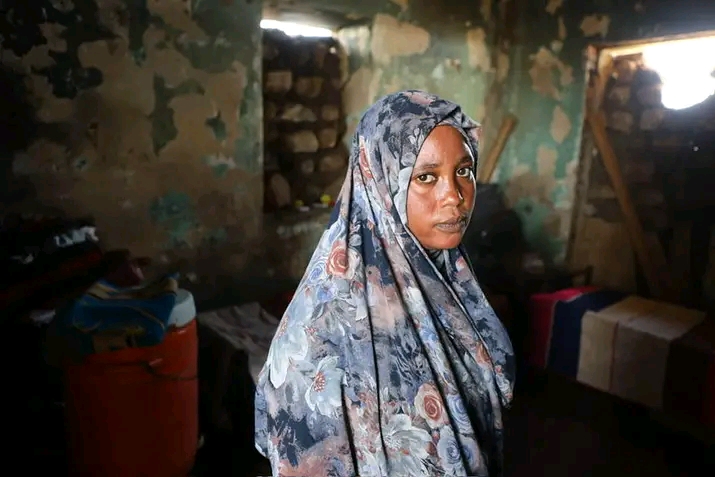As the war in Sudan spreads and waves of displacement continue to rise, the situation for women has drastically worsened due to immense pressure on resources and essential services in relatively safe cities. The lack of access to primary and reproductive healthcare is raising fears of an impending humanitarian catastrophe, expanding alarmingly as the armed conflict persists.
In active conflict zones, many hospitals have ceased operations or collapsed entirely, leaving women unable to access treatment or medical screenings due to security risks and limited mobility. This has led to tragic outcomes, including rising maternal and pregnancy-related deaths, and thousands of women facing life-threatening conditions due to the interruption of treatments for kidney failure, cancer, and diabetes.
Healthcare Deficiencies
Ibtihal Al-Nour, a member of the Sudanese Family Planning Association, told Mashawir that “miscarriage cases have increased in displacement shelters due to the lack of proper medical care and a severe shortage of reproductive health services—especially vitamins and nutritional supplements.”
She added that hundreds of displaced women are suffering greatly, with numerous deaths recorded among mothers due to poor prenatal care and the lack of newborn care, resulting in higher maternal and infant mortality rates.
Al-Nour explained that “the absence of essential vitamins, poor nutrition, and a lack of vaccinations during pregnancy have caused a spike in miscarriages, particularly in displacement camps and among mothers in conflict-affected areas.”
Strategic Plan
Sudan’s Minister of Health, Haitham Mohamed Ibrahim, stated that “the maternal mortality rate has reached 295 per 100,000 live births, and the child mortality rate stands at 51 per 1,000 live births. These groups therefore require special care.”
He added that “the state of reproductive and maternal health needs urgent intervention, especially in light of the war and attacks by the Rapid Support Forces.” A strategic plan for 2025 has been established, requiring over $200 million in funding from the Sudanese government, partners, and donors.
The Minister noted that agreements have been reached with the World Health Organization (WHO), UNICEF, and various donors to coordinate efforts to reduce maternal and child mortality by meeting actual needs and increasing attention to this crisis.
Alarming Death Rates
Médecins Sans Frontières (MSF) stated that pregnant women, mothers, and newborns are dying at an alarming rate in South Darfur, Sudan.
The organization reported 46 maternal deaths in two MSF-supported hospitals in South Darfur between January and August of last year, along with 48 newborn deaths.
MSF highlighted that conflict and displacement are forcing women to give birth in unhygienic conditions with no access to healthcare or medicine. It urged the United Nations to take decisive action to prevent further loss of life.
Medicine and Supplies Crisis
Dr. Samer Al-Tayeb, a physician at the Al-Banan Jadeed Hospital in Khartoum, told Mashawir that “women are suffering due to hospital closures and severe shortages of blood bags, IV fluids, painkillers, and essential equipment, especially for kidney treatment, neurosurgery, and cardiac care.”
He stressed that delayed access to medical assistance is leading to preventable deaths, particularly among critical cases like childbirth, gunshot injuries, and fractures.
Dr. Al-Tayeb noted that breastfeeding mothers are among the most affected by the war’s impact, and that the crisis has overwhelmed the capacity of the few hospitals that remain operational.
Ongoing Risk
Haifa Omar, a resident of the Al-Kalakla area, told Mashawir that she “was forced to risk her life traveling from Khartoum to Omdurman so her elderly mother could undergo an emergency cardiac catheterization.”
She added that “most women in the nearby neighborhoods are in severe pain from chronic illnesses, and we often hear them crying. It’s heartbreaking not to be able to help our neighbors during such times.”
Omar explained that with savings depleted, hospitals closed, and medical supplies scarce, many women have died across the capital’s three cities—Bahri, Omdurman, and Khartoum.
Lack of International Funding
Meanwhile, the World Health Organization is working with Sudan’s Ministry of Health to restore maternity services in hospitals, but the need to secure support for pregnant women in the capital remains urgent.
The UN Population Fund (UNFPA) warned that funding prospects for 2025 are bleak, with international aid under growing threat and the gap between humanitarian needs and available funding widening.
The Fund stated that the specific needs of women and girls are often overlooked in humanitarian responses, making it one of the least funded sectors.
It added that “women and girls are losing access to essential health services and supplies—a reality already playing out in some of the world’s most urgent yet underfunded crises.”
